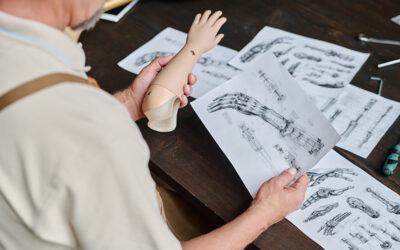The American Academy of Professional Coders (AAPC) defines speech-language therapy (SLP) as “Treatment to regain and strengthen speech skills”. According to the American Speech-Language-Hearing Association (ASHA), an estimated 1 in 12 children in the U.S. aged between 3 and 17 years suffer from speech impairment, language, communication, or swallowing problems. Speech-language pathologists work to provide individualized treatment for these communication disorders. With high case loads, providing speech therapy takes time, effort and patience. As SLPs focus on their patients, outsourced medical billing services are a practical strategy to ensure accurate use of audiology and speech-language pathology related billing codes to obtain appropriate reimbursement for interventions provided.
ICD-10-CM Codes for Speech Therapy and How to Use Them
Commonly used ICD-10 codes for speech therapy include:
R13.11 Dysphagia, oral phase
R13.12 Dysphagia, oropharyngeal phase
R48.8 Other symbolic dysfunctions
R47.1 Dysarthria and anarthria
R48.2 Apraxia
R48.8 Other symbolic dysfunctions)
R63.3 Feeding difficulties
F80.0 Phonological disorder
F80.2 Mixed receptive-expressive language disorder
F80.81 Childhood onset fluency disorder
F84.5 Asperger’s syndrome
There are additional codes in each of these code series.
It’s important to know when to apply these codes. Here is some guidance from ASHA:
- Medically-based speech, language, or swallowing problems, such as those related to cleft palate and cerebral palsy, are found in the R00-R99 series of codes. For example, R47.1 is the code for dysarthria of speech (not related to a cerebrovascular accident, which may describe the speech of a child with cerebral palsy.
- Code R48.8 is used to depict language deficits of a child that are related to an organic or medical condition. R48.2 is one of the few codes in the “R” series of codes that an SLP can assign without the patient having a secondary medical condition. If there is an underlying medical condition contributing to the speech or language deficit, the claim should include this information.
- Code F80.2, mixed receptive-expressive language disorder, should be used for a child with no related medical condition but who has speech-language deficits.
- The signs and symptoms, chief complaint, or reason for the encounter should be reported as the primary diagnosis. Any additional codes that describe coexisting conditions should be listed on the claim.
- The second-listed diagnosis or medical diagnosis is that which is causing or contributing to the speech, language, swallowing, vestibular, and/or hearing disorder. For example, for a patient with autism (F84.0) or Asperger’s syndrome (F84.5), the speech-language disorder that the SLP treats should be the first-listed diagnosis, such as, R48.8 (other symbolic dysfunction) which captures organic-based language deficits.
- Providers should choose the code(s) that provide the highest degree of specificity (accuracy and completeness)
Updated lists are posted annually on October 1 and practices need to stay up to date with changes to submit accurate claims.
CPT Codes and General Coding Guidelines
An encounter for speech therapy individual treatment is defined as”face-to-face time with the patient and/or caregiver for a length of time compliant with nationally recognized professional speech-language pathology standards for a typical session ‘. The most common CPT codes used by SLPs to report procedures or services are:
31579 Laryngoscopy, flexible or rigid telescopic, with stroboscopy
92507 Treatment of speech, language, voice, communication, and/or auditory processing disorder
92521 Evaluation of speech fluency (e.g., stuttering, cluttering)
92522 speech sound disorder only
92523 Evaluation of speech sound production (e.g., articulation, phonological process, apraxia, dysarthria); with evaluation of language comprehension and expression (e.g., receptive and expressive language)
92524 Behavioral and qualitative analysis of voice and resonance
92526 Treatment of swallowing dysfunction and/or oral function for feeding
92601 Diagnostic analysis of cochlear implant, patient under 7 years of age; with programming
92605 Evaluation for prescription of non-speech-generating augmentative and alternative communication device
92606 Therapeutic services for the use of non-speech-generating augmentation and alternative communication device
92609 Therapeutic services for the use of speech-generating device
96105 Aphasia
92610 Evaluation of oral and pharyngeal swallowing function
96125 Cognitive impairment
The following CPT codes came into effect January 1, 2022:
98975 Remote therapeutic monitoring (e.g., respiratory system status, musculoskeletal system status, therapy adherence, therapy response); initial set-up and patient education on use of equipment
98976 Device(s) supply with scheduled (eg, daily) recording(s) and/or programmed alert(s) transmission to monitor respiratory system, each 30 days
98977 Device(s) supply with scheduled (eg, daily) recording(s) and/or programmed alert(s) transmission to monitor musculoskeletal system, each 30 days
98980 Remote therapeutic monitoring treatment management services, physician/other qualified health care professional time in a calendar month requiring at least one interactive communication with the patient/caregiver during the calendar month; first 20 minutes
98981 Each additional 20 minutes (listed separately in addition to code for primary procedure)
Practices should know the general guidelines for CPT coding as well as payer-specific coding and coverage policies. Here are some general CPT coding guidelines for SLPs:
- There are CPT Codes for Case Management, Patient Education, and Other Miscellaneous Services. Though Medicare does not recognize these codes for billing by SLPs, other payers may elect to cover them.
- Most SLP codes are untimed, which means they don’t have a time unit in their descriptors and are considered “session-based. ‘ Untimed codes may be reported once per day, regardless of the length of the session. Examples include CPT codes 92507 (Treatment of speech, language, voice, communication, and/or auditory processing disorder; individual) and 92557 (Comprehensive audiometry threshold evaluation and speech recognition). However, the documentation must include the start time and stop time of the therapy, total minutes of the therapy and specific therapy performed.
- SLPs providing tele practice services should report CPT codes in the same way as for services provided face-to-face and follow the same guidelines for appropriate billing.
- CPT 92700, unlisted otorhinolaryngologic service or procedure can be used when no other code describes the procedure performed.
Key Considerations when Billing SLP Services
Let’s take a look the key points to note when billing speech therapy services.
-
- Understand modifier use: There are many modifiers that should be applied when billing for SLP services. It’s crucial to know how to use these modifiers to prevent claim denials.
- KX modifier: Speech-language pathology services are subject to a specific allotted amount which includes any physical therapy services the Medicare beneficiary receives. Therapists should append the KX modifier to all medically necessary services above the designated threshold when submitting claims to Medicare. The KX modifier signifies that though the patient services have met the capped amount allowed, the provider considers continued care medically necessary. For Calendar Year (CY) 2022, the KX modifier threshold amounts are $ 2,150 for PT and SLP services combined. The documentation should also fully support the medical necessity of the services above the limit. Since PT and SLP services count toward the same threshold amount, SLPs should consider any physical therapy services a Medicare patient received during the plan year before submitting claims for any SLP services.
- Understand modifier use: There are many modifiers that should be applied when billing for SLP services. It’s crucial to know how to use these modifiers to prevent claim denials.
Other modifiers for SLP services include:
-
- GN Modifier: Speech therapy treatment procedure codes should be billed with the GN modifier to indicate that the Medicare Part B services were delivered under an outpatient speech language pathology plan of care.
- U5 Modifier: Services delivered by a licensed therapist or physician
- UB Modifier: Re-evaluations of oral and pharyngeal swallowing functions (procedure code 92610) require the U2 modifier
- U2 modifier: Re-evaluations of oral and pharyngeal swallowing functions (procedure code 92610)
- 22 Modifier: When the physician deems the work required to provide a service is substantially is greater than typically required. This substantial additional work and the reason for it should be indicated in the medical documentation.
- 52 Modifier: to indicate services reduced or eliminated at the physician’s discretion.
- 59 Modifier: to identify procedures or services, other than E/M services, that are not normally reported together but are appropriate under the circumstances.
- Refer to LCD and NCD guidelines: An LCD for a specific jurisdiction is a decision by a Medicare contractor whether to cover a particular item or service. National coverage determination (NCD) developed by Medicare is applicable to all jurisdictions. When billing SLP services, medical billers should refer to the billing guidelines and instances of medical necessity in the CMS listings of LCDs and NCDs to understand what Medicare considers “reasonable and necessary’.
- Prior authorization requirements: Except for speech therapy evaluations and re-evaluations, all speech therapy services require prior authorization. The prior authorization must be obtained before the initiation of therapy treatment services. Documentation must support treatment goals and outcomes for the specific therapy disciplines for which prior authorization is requested.
With many codes to choose from, medical billing and coding outsourcing to an expert is the best option to get accurately reimbursed. Proper and accurate documentation is also for billing compliance and to avoid denials.




